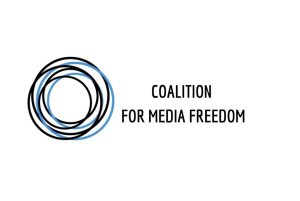The Coalition Against SLAPPs in Europe (CASE), of which the European Federation of Journalists (EFJ) is a member, issued a statement welcoming the adoption of the Recommendation on countering the use of SLAPPs by the Council of Europe (CoE) on 5 April 2024. Although there is still room for improvement, the Recommendation is an important step in the protection of press freedom, guaranteeing journalists a safer environment, free from fear and intimidation.
The Recommendation establishes robust standards that Member States must meet in order to ensure compliance with their human rights obligations. This Recommendation could help guide EU Member States as they transpose the anti-SLAPP directive into national law, and provide a roadmap for non-EU members of the CoE to introduce effective anti-SLAPP protections of their own. It is also complemented by a report by the CoE Parliamentary Assembly (PACE) published in January 2024.
Maja Sever, EFJ President, said “ The adoption of the CoE Recommendation is a further step in sanctioning those who use SLAPPs or threaten to do so. The pressure of such abusive lawsuits on journalists makes their day-to-day work difficult. Self-regulation should be the norm, a long-standing tradition in Europe that allows people to make complaints without bringing in the costs and complications of the law”.
Université libre de Bruxelles (ULB) recently published a study exploring the role of self-regulatory bodies in fighting against SLAPPs. Self-regulation has historically been a way to protect the independence of journalism and uphold its ethical standards. Disagreements about journalistic works can be settled without involving a judge.
According to the researchers, self-regulatory bodies can play a role in combating SLAPP cases. As referees of journalism, they can assess whether an article meets ethical standards. Such judgement could ‘shield’ against attacks, such as accusations of defamation.
The CoE recommendation includes vital benchmarks when introducing domestic anti-SLAPP legislation. CASE stated that the Recommendation includes important strengths that should serve as a signpost in developing robust anti-SLAPP protections at the national level. They also identified several ambiguities in the text – in particular, with the early dismissal mechanism – that could, if interpreted in a restrictive manner, hinder efforts to counter the use of SLAPPs.
“As [we have] already laid out, it is crucial that the EU Directive be understood as establishing minimum standards for anti-SLAPP protection. The Recommendation helps flesh out these standards and provides the detail needed for anti-SLAPP laws to provide meaningful protection,” wrote CASE Coalition.
Source: EFJ




